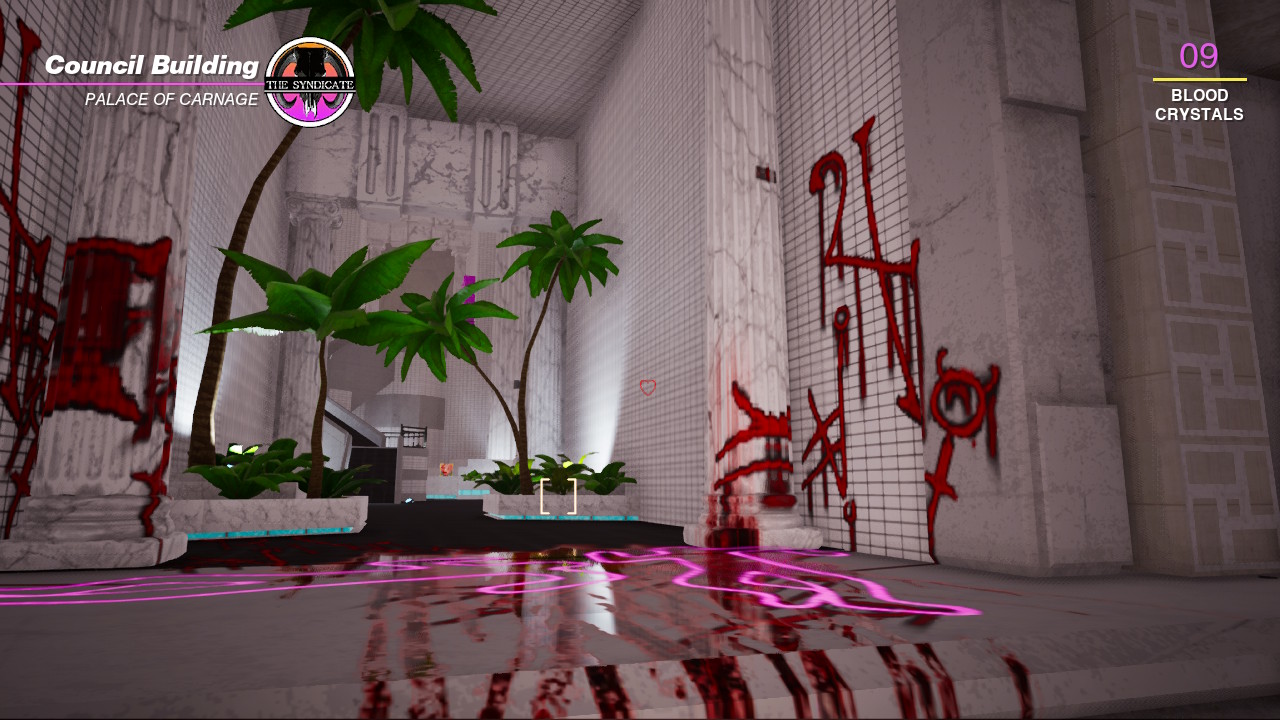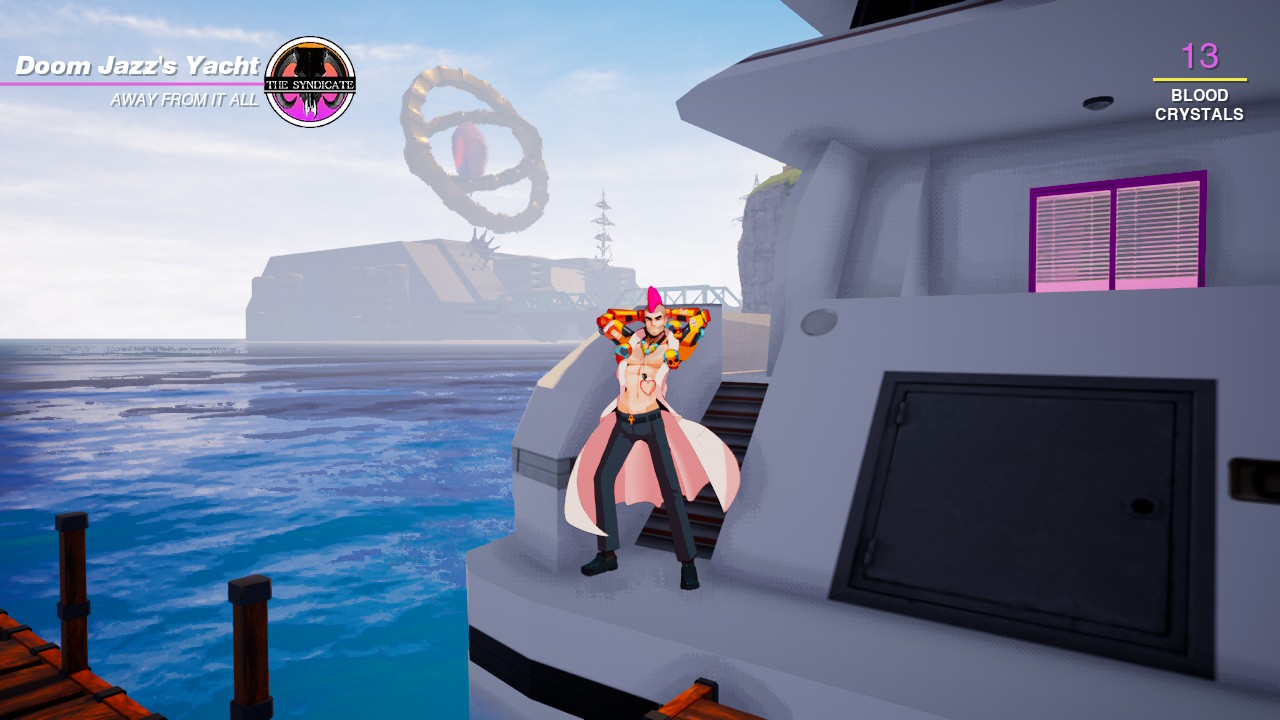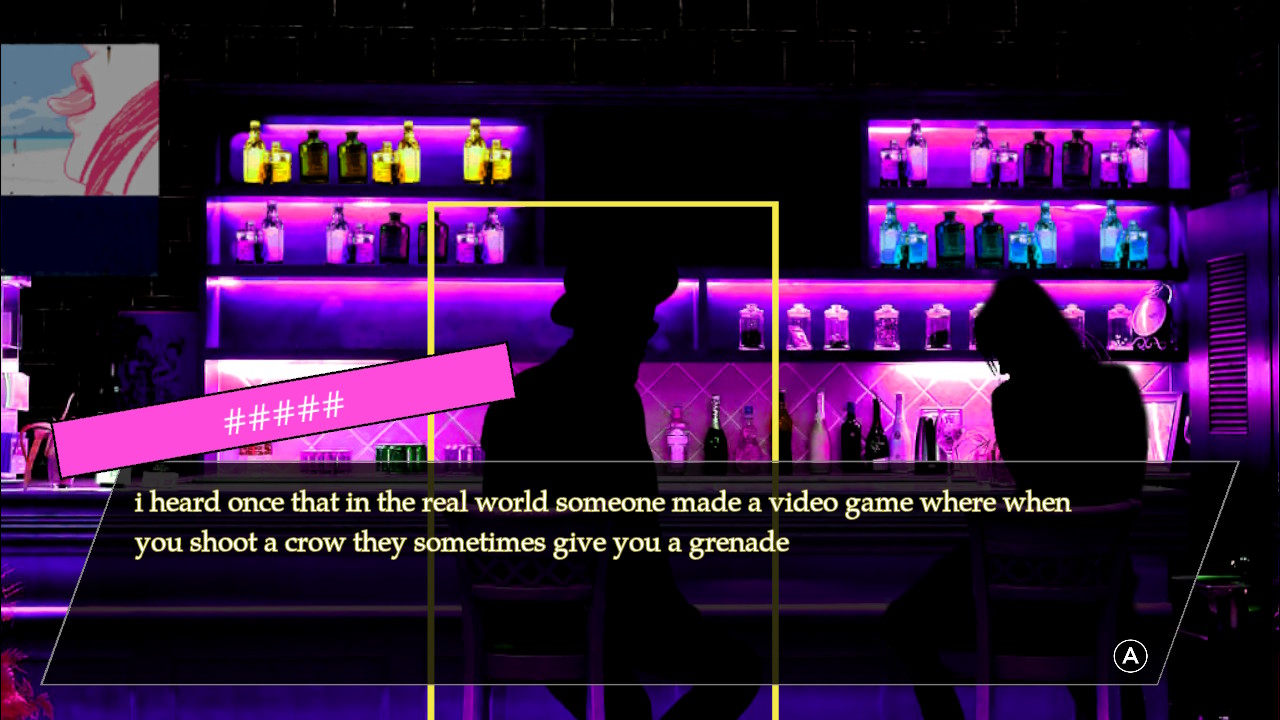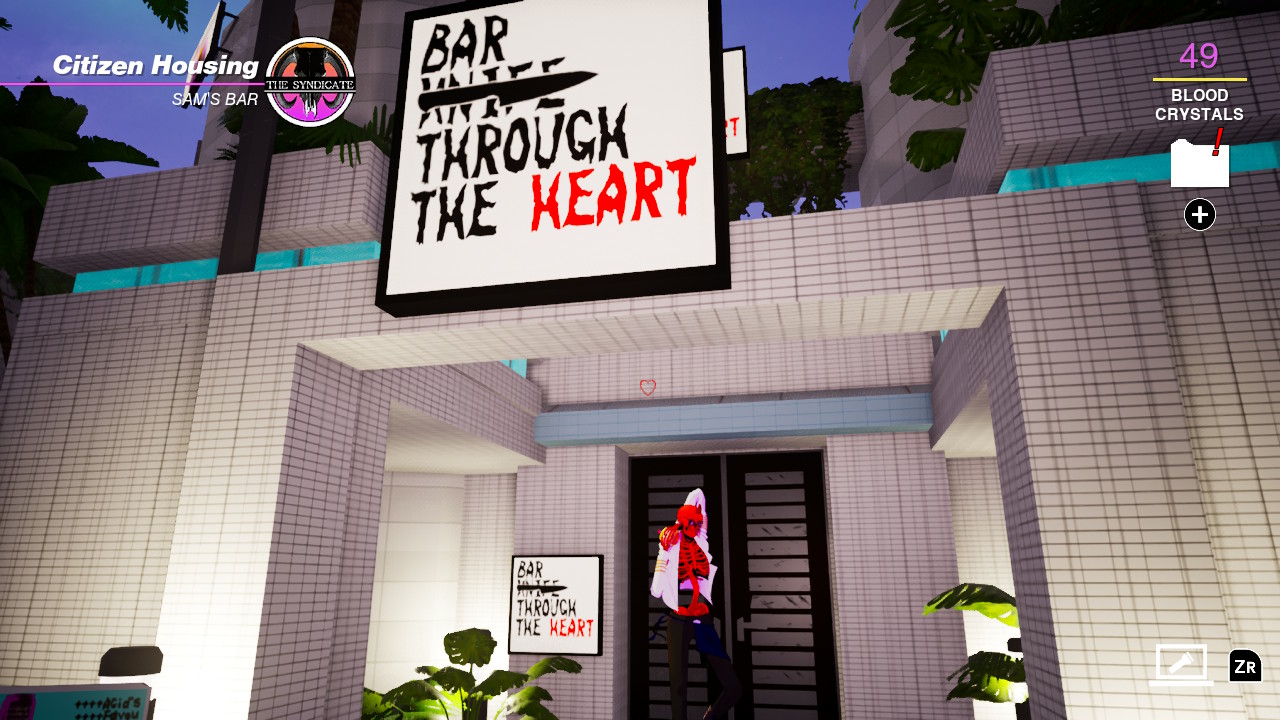I’ll admit, I went into this expecting a somewhat different sort of game. In my head, it was a bit Phoenix Wright or Murder By Numbers, but it actually turned out to be a more-interactive-than-usual visual novel with a make-your-own-ending, in first person with platforming. Neither the reviews nor the screenshots suggested the platforming was even a thing, but it is – and it’s a pretty big part of the game.
So, my interpretation of the world in which this is set (which may be incorrect) is this: In an afterlife, an island is constructed to be paradise to a select few, and a residence for a number of less important people who are there to serve the important people. However, the island is inherently flawed, and so a new, better island is created and when the time comes all the servants are killed and the important people move on to the new one. This happens over and over, with demon invasions and corruption causing each island to end and the cycle to repeat. However, this time, things are different. Island 25 is supposedly perfect, and it is the end of days of Island 24. Preparations for the move have started, but then the entire council of people who run the island are seemingly murdered. But whodunnit?

As Lady Love Dies, an investigator who herself was exiled for allowing herself to be consumed by a demon, you’ve been allowed back into Paradise to figure out not only who did the deed, but also how. As well as uncover a number of possibly related smaller crimes.
You explore the island, solve a few puzzles, scan stuff with your PDA-type device, and interrogate those people who are still around. A strange collection of people with equally strange names, like Doctor Doom Jazz, the island medic who has had every woman (and probably man), including you. Or Sam Daybreak, a red skeleton who was an assassin when he was human but is now a bartender who brews his own whiskey, sometimes from illegal ingredients. You can build up relationships with these characters, and eventually they may open up to you with more information to help your investigation.

After you’ve conversed and explored as much as you feel you need to in order to put together a portfolio of evidence and a timeline of events, you can speak to Judge to start the trial. It seems to you do this whenever you wish, but if you’ve not collected enough of a case, you won’t be able to convince Judge that your Truth is the Truth, and so the murderer(s!) will go free. The reason I say “your” Truth is because it’s possible to weave a narrative to fit pretty much anyone in the frame without contradiction, and this is where the game massively departs from the likes of Phoenix Wright – you’re not guided towards the truth in court, you have to guide the court to your truth. There’s no last minute revelations here which turn the case upside down – once you’re in court, you should have the case solved. It’s very clever how all these possibilities work, if a little vague how you know if you’re doing the right thing. Ultimately, it’s your decision: If you have the evidence to back it up, at least.
The platforming, then. Although the ability to roam (mostly) freely around the island in first person is good, some items are only reachable with some tricky jumping, and the game engine clearly isn’t Mario 64 or Mirror’s Edge. The platforming is hazy and inaccurate, and often I found myself reaching places through clumsiness and glitching rather than skill and timing. It’s not that you die or anything, but falling a long way means a tedious re-tread. It’s unclear how high you jump related to walls and fences. It’s imprecise how you walk on narrow ledges. It just doesn’t quite work, and if you’re hoarding blood crystals (a seemingly finite source of currency) you’re not going to spend them on fast travelling so there’s a lot of awkward jumpery.

Aside from that, though, it’s an amazing game. There’s such deep characterisation and lore, that you really do want to exhaust every avenue of both questioning and island exploration even if the reward is just a few throwaway lines or the history of a long extinct failed island precursor and has no relevance to the Crime to End All Crimes. Or, it might. Paradise Killer is extraordinarily well-written, not least because it’s not a 2D story. There are layers, overlapping and underlining, and it all seems to make sense even if you miss bits or decide to assume one person’s testimony is a lie. In fact, I’d say it isn’t written at all – it’s crafted.

